Mumbai photojournalist Anand Shinde shares his experiences as an elephant whisperer in Kerala. His initiative, Dialogue with Elephants, is an effort to change attitudes towards the pachyderm, and keep it safe
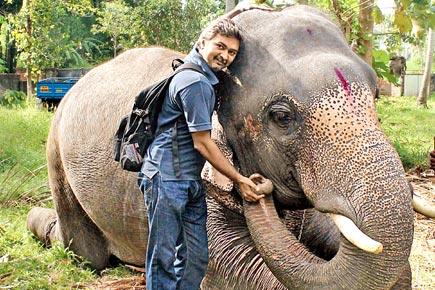
In today’s times, elephants are much maligned for destroying crops. Such misconceptions about the animal hurts photographer Anand Shinde (35) who has been working with them extensively. The Mumbai photographer, who works for a national newspaper, has been working in Kerala for the last two years.
ADVERTISEMENT
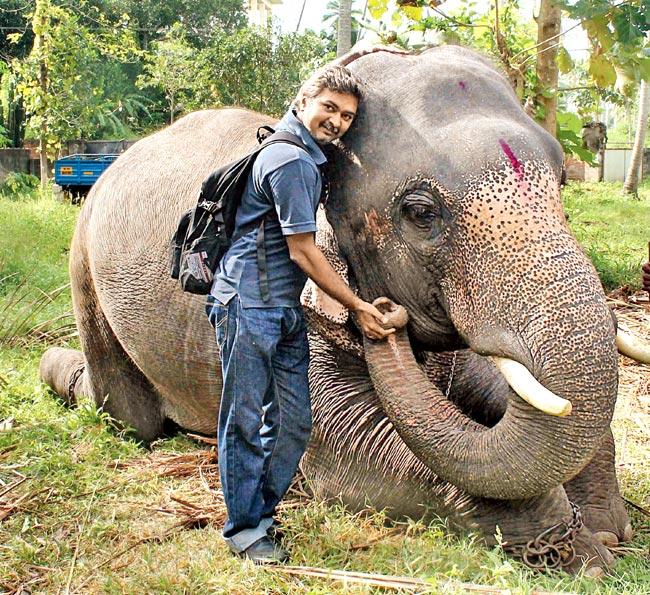
Anand Shinde speaks to elephants and understands their problems. Pic courtesy/Anand Shinde
Being unfamiliar with the language, he initially decided to work on a photo story on the state’s elephants. He visited the Thrissur Pooram festival which sees a huge turnout of male elephants. That’s where he experienced their capacity to shower love.
Trunk factor
“It was a sunny day and the elephants had been standing for hours. The mahouts were sitting under the elephants, enjoying the shade and the elephants didn’t seem to mind. Though the mahout beats the elephant at times, they remain kind towards them. It struck me that this animal is different.”
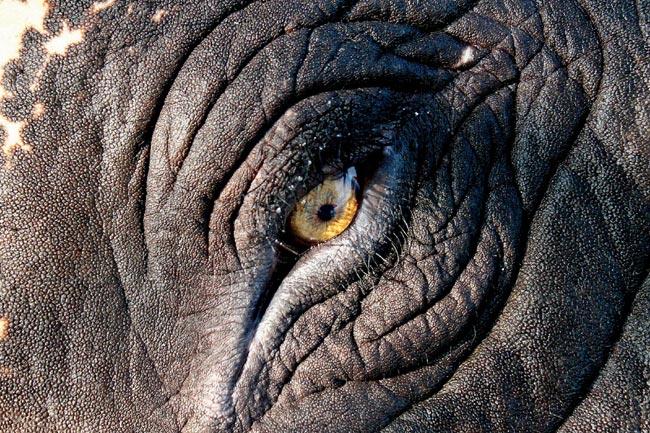
The elephant Sunitha at Kodanad. Pics courtesy/Anand Shinde
Shinde began to study elephants, and met veterinary doctor Dr Jacob Alexander who guided him. Soon, he was devoting weekends to visiting the elephant centres in Kerala, such as the Kottor elephant centre and the training centre in Kodanad, where he met two baby elephants: Krishna and Ganga. While Ganga was healthy, Krishna had a fractured leg. “There was so much pain in his eyes. I realised that he was making a rumbling sound,” he recalls.
Shinde recorded the sound and when he played it for Dr Alexander, the doctor explained that only elephants can rumble (the sound can carry up to seven km) and it was an attempt to communicate.
Also read: Meet the 'deep sea whisperer' who hypnotises sharks!
The next time Shinde visited the centre, he spent time emulating the sounds Krishna made. “We bonded and he started anticipating my arrival by making sounds. He would know when I reached the centre (even though the bus stop was 200 metres away),” he reminisces.
Comfort on call
Shinde started comforting Krishna during thunderstorms and when the elephant was unwell. “Elephants are highly sensitive. When they are young, members of the herd touch them to give reassurance. Perhaps, through my talks I was doing the same,” he feels.
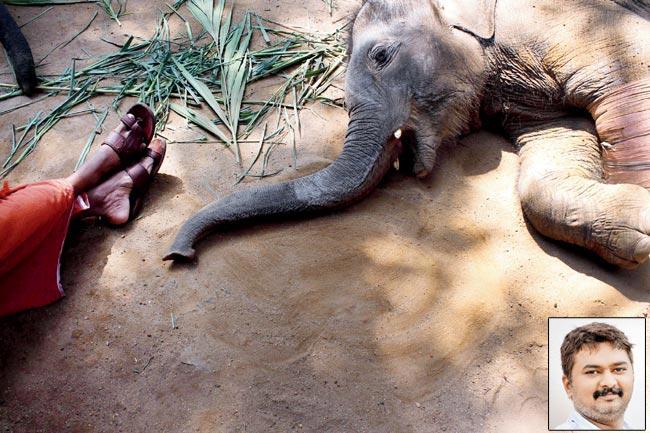
The mahout and the injured elephant Krishna at Kodanad elephant centre with whom Anand (inset) bonded
Because elephants are herd animals, it is tough to ensure their survival: “They have a long gestation period of 22 months and if a baby elephant is separated from the herd, despite human care, chances of survival reduce by 50%. It’s because the elephant learns mannerisms from observing other elephants.”
When Shinde had to head to Mumbai due to a family emergency, Krishna passed away. He decided to honour Krishna and returned to Kodanad where he interacted with other elephants who were responsive to him too. Over the years, he shot thousands of photos of elephants and dozens of videos of their sounds.
Call for help
Shinde’s interactions spurred him to raise awareness about elephants. He started by making a presentation for the then Chief Wildlife Warden, V Gopinath (now Head of Forest Force) in Kerala, with his observations. It led to the birth of his initiative, Dialogue with Elephants. The elephant Bijlee (a 58-year-old elephant who collapsed on a Mumbai road) was the first elephant that he tried to help. “Bijlee was in pain and surrounded by onlookers. I advised that they should make space for her. She wasn’t eating as she wasn’t being fed properly (she was given chapatis which isn’t their diet; she consumed only fruits).”
Thereafter, Bijlee was shifted to the care of elephant expert Dr KK Sarma and Shinde wasn’t able to speak to him about Bijlee, who eventually passed away. “There was no reason for him to speak to me. I am just someone who has studied elephants and taken guidelines from Dr Alexander,” he reveals.
State of the matter
Ironically, while his efforts have been recognised in Kerala, his home state is unaware about him. But he is trying to change that through presentations to forest departments and ecological societies. With reports of elephants on rampage in Kolhapur, Shinde mailed the Maharashtra Forest Department offering help but didn’t receive a reply. A recent report mentioned an elephant attack on crops in the Konkan. Shinde is hopeful that he will get the chance to communicate with the elephants.
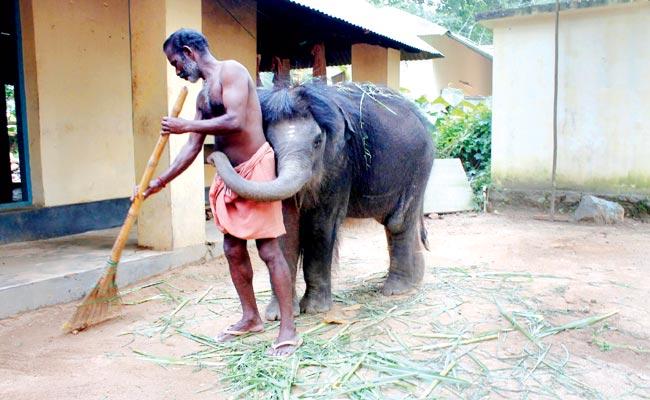
The mahout and playful baby elephant Ganga at Kodanad
“Elephants only go for nutritious crops,” he explains, adding that electric fences and burning chilli (some of the solutions opted for) only give temporary relief and angers them.
Summing up his experience, he states, “I have been among elephants for two years, and can predict their behaviour; I have been with humans for 35 years and still cannot do so. Elephants made me more human. Being with them is like meditation.”
 Subscribe today by clicking the link and stay updated with the latest news!" Click here!
Subscribe today by clicking the link and stay updated with the latest news!" Click here!






